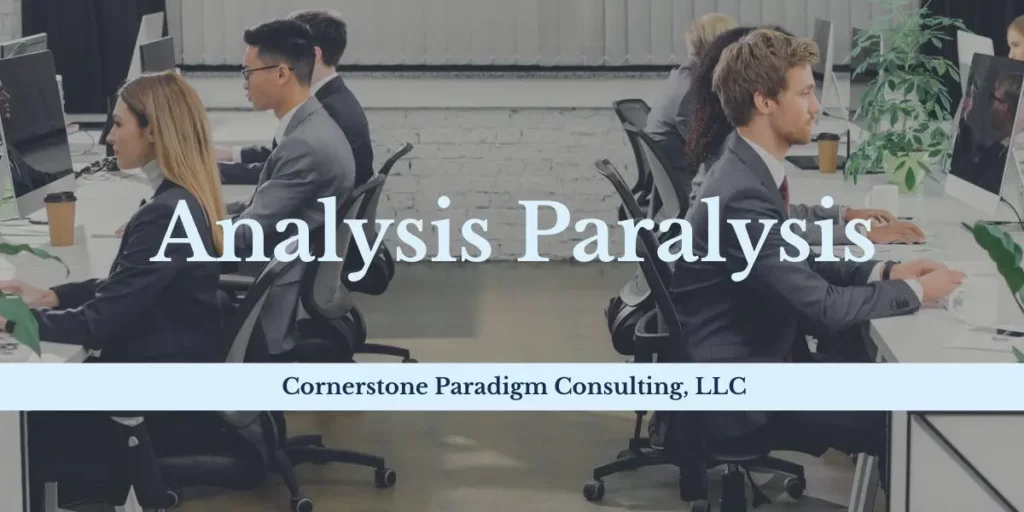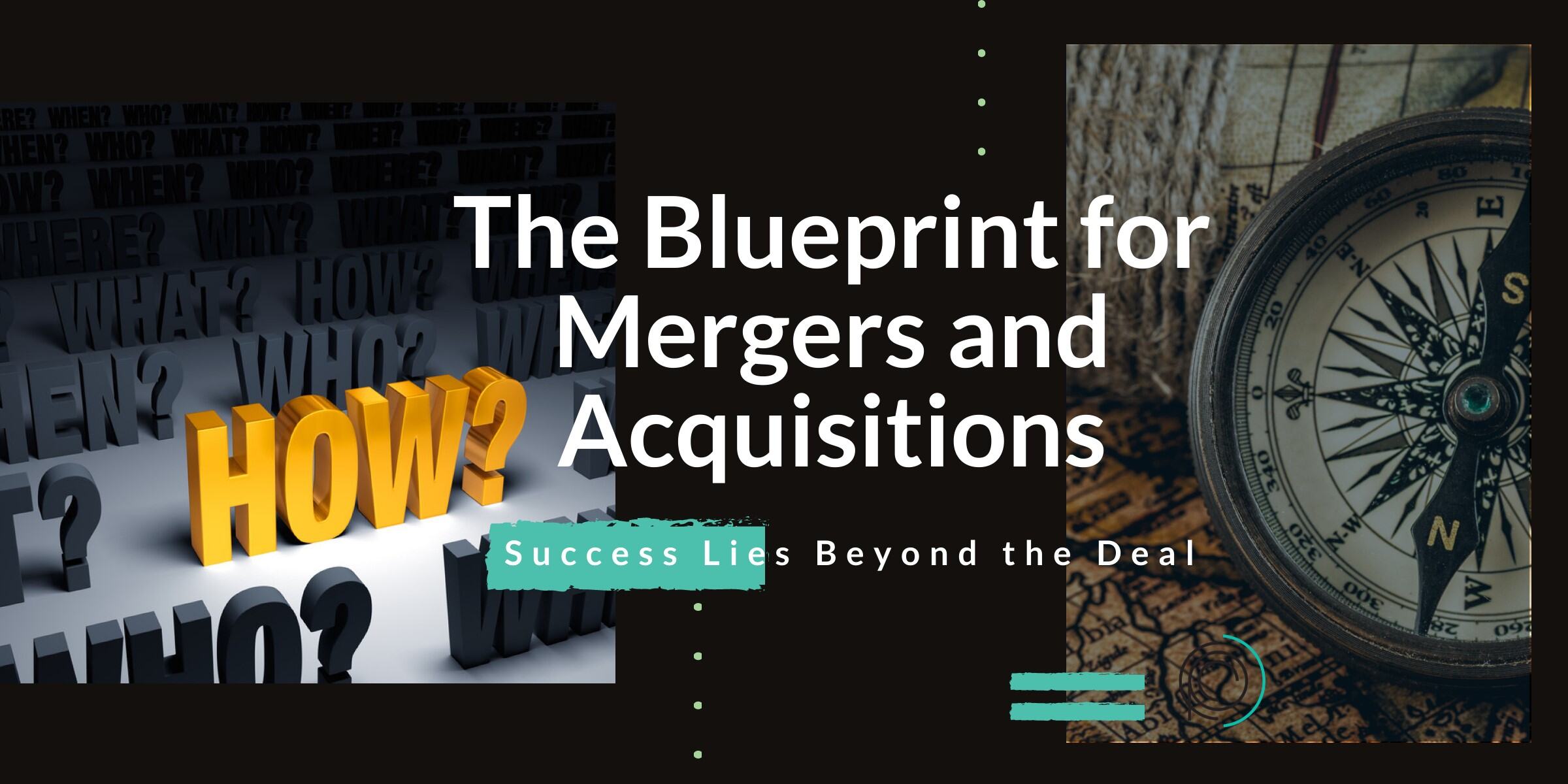Understanding Analysis Paralysis: Breaking Free from Decision-Making Gridlock in a Fast-Paced World
The phrase, “analysis paralysis” has been all over social media. Like most buzz words, terms, and catchphrases, people just use it and don’t really understand the full depth and breadth of what it means. That’s where this blog post comes in handy.
Analysis paralysis is a phenomenon that affects many individuals, particularly in the fast-paced world we live in today. It refers to the state of overthinking and overanalyzing a situation or decision to the point of being unable to make a clear and concise choice.
In simple terms, analysis paralysis is a psychological state where an individual gets overly focused on seeking the ideal solution or result, causing them to feel paralyzed and incapable of making any decision. This mental gridlock can result in missed chances, squandered time, and heightened levels of stress, ultimately hindering progress and personal growth.
What you can try
Why do people fall victim to analysis paralysis? There are a few common reasons:
- Fear of making the wrong decision: Many individuals are afraid of making mistakes or facing negative consequences, so they overanalyze every possible outcome in an attempt to avoid failure.
- Perfectionism: The desire for perfection can become a hindrance, as individuals may feel the need to find the perfect solution rather than making a decision based on available information.
- Overwhelming amount of options: With the rise of technology and endless resources at our fingertips, we are often presented with an overwhelming number of choices. This can lead to analysis paralysis as individuals struggle to narrow down their options.
How can one overcome analysis paralysis? Here are some tips:
- Set a deadline: Give yourself a specific timeline for making a decision. This will help prevent you from endlessly analyzing and force you to make a choice.
- Gather only essential information: Instead of seeking out every bit of information available, focus on gathering only what is necessary to make an informed decision.
- Consider the worst-case scenario: Often, the fear of making a wrong decision is what leads to analysis paralysis. By considering the worst-case scenario, you may find that it’s not as bad as you think and be more willing to make a decision.
- Practice mindfulness: Being present in the moment can help quiet the mind and allow for clearer thinking. Take breaks from overthinking and engage in activities that help you relax and refocus.
Analysis paralysis can be detrimental to both personal and professional growth. By understanding its causes and implementing strategies to overcome it, individuals can make decisions with more confidence and efficiency. So the next time you find yourself stuck in analysis paralysis, remember these tips and work towards breaking free from this harmful state of mind. Moreover, it’s important to remember that making mistakes and facing challenges are a natural part of life. Embracing imperfection and learning from experiences can help prevent falling into the trap of analysis paralysis in the future. Trust your instincts and have faith in your ability to make decisions – you may just surprise yourself with the positive outcomes that come from taking action.
Where did this term come from?
We’re going back to 2004; an American psychologist who goes by the name of Barry Schwartz, first introduced the phrase analysis paralysis in his book The Paradox of Choice. In the book, Schwartz argues that eliminating consumer choices can greatly reduce anxiety for shoppers. Now I can’t say that I completely agree with Schwartz on his perspective of eliminating choices. What I can agree on is providing both the pros and cons of every single choice that is appropriate for the situation, especially when it comes to business and eliminating the shiny, not applicable choices. Schwartz’s work has since been referenced and studied by numerous experts in psychology, economics and marketing.
As technology continues to advance at a rapid pace, the amount of information and options available to us will only increase. It’s important for individuals to be aware of analysis paralysis and take steps to overcome it in order to make timely and effective decisions. By understanding its origins, causes, and solutions, we can navigate through the overwhelm of choices and achieve personal and professional success. So, next time you find yourself stuck in analysis paralysis, take a step back, breathe and remember that sometimes good enough is better than perfect. There’s no need to overthink every little decision – trust yourself and embrace the power of decisive action. As they say, “analysis paralysis is the enemy of progress”. So go forth, make decisions with confidence and watch your life flourish. Keep in mind that making mistakes is a part of growth and success; don’t let analysis paralysis hold you back from reaching your full potential. Now get out there and seize the day! Happy decision-making!
Choices
When businesses have too many choices it can be challenging to discern which is the best choice whether that is choosing technology, hiring a new candidate, or talking about “industry best practices.” In my experience, when a business has a need for something to change it is usually apparent. I need a new ERP, CRM, MRP, or account manager. Now how that company goes about resolving the problem is another story. We all go into decision-making with good intentions such as googling, looking at competitors (don’t worry, I won’t tell) or calling a friend to see what they did. The component we fail to remember the uniqueness of your company, and that means figuring out what are your processes, what is your technology stack, and what is the root cause of the issue. These are never as apparent as one may think. Now I will say this, and I am firm on it. This is not the time to assume you need a new piece of technology and go with the most popular choice. It may very well be a great choice, but it may not be the right one for you.
There are so many factors one needs to think about before making a purchase or hiring or firing human capital. You must do your work first. And once you have all the information, remember that sometimes good enough is better than perfect. It’s important not to get bogged down with finding the perfect solution or option. Make the best decision possible based on the available information and trust in your abilities to handle any challenges that may arise. With this mindset, you can confidently move forward and continue making progress towards your goals. So remember, don’t let analysis paralysis hold you back from taking action and making choices that can lead to growth and success. Take a deep breath, trust yourself, and make decisive decisions – your future self will thank you for it. Keep these tips in mind and overcome the paralysis of overthinking, one decision at a time.
When I refer to “work,” I mean mapping out your processes which can be easier said than done. Look at hidden issues like Shadow IT, and documents saved on local drives or desktops. I’m encouraging you to get the full picture of your current state and not gather executives in a room to decide in a week or even a day. It’s a recipe for disaster. One can experience Analysis Paralysis when they are making a big decision without having all the information.
We need to compare what will address the issues, the cost, intergrade-ability, upgrading, longevity – just to name a few. In some cases, it’s not so much the cost as it is the cost in time, bandwidth, or scalability over time. I believe analysis paralysis is where you can really benefit from an expert helping you with facts, data, process mapping, and the rest of the logistics that go into solving the problem. It means spending a little to save a lot of time and money. As Schwartz said, “eliminating consumer choices can greatly reduce anxiety for shoppers.” The same concept applies to businesses – eliminating unnecessary choices and focusing on the most effective solutions can save time, resources, and ultimately lead to success.
Avoid allowing analysis paralysis to impede your business growth and progress. Seek valuable insights and advice from industry experts to effectively navigate decision-making processes. Always keep in mind that the goal is not to seek perfection but to make well-informed and timely decisions that contribute to propelling your business forward successfully. Embrace a mindset of taking decisive actions and strategic steps to witness your business not just survive, but truly thrive in the competitive landscape.
So next time you find yourself stuck in analysis paralysis, remember to take a step back and gather all the necessary information before making a decision. Don’t be afraid to seek help from experts and trust in your own abilities to make the best decision for your unique situation. You can contact one of our experts today for a no obligation consultation. And most importantly, always remember that progress is more important than perfection.







